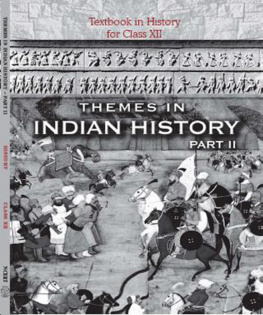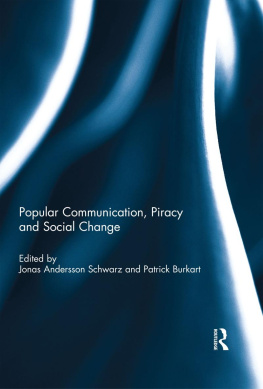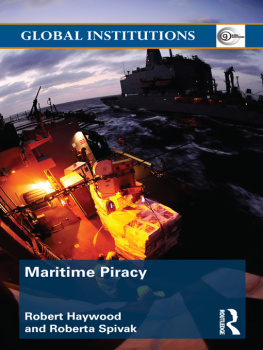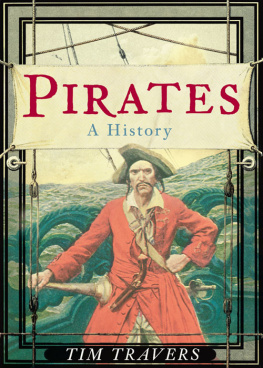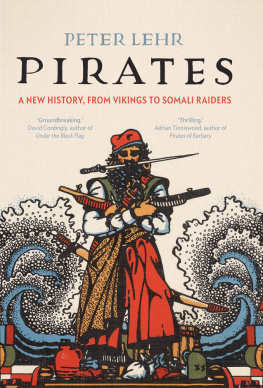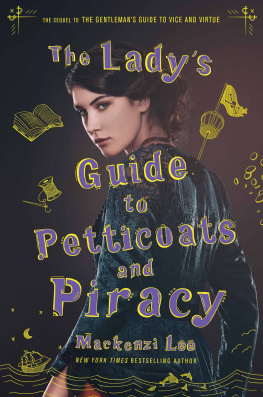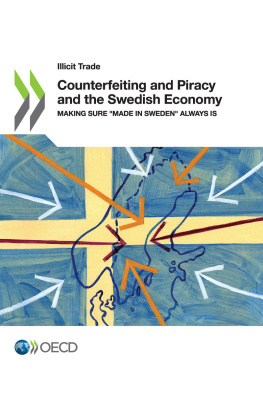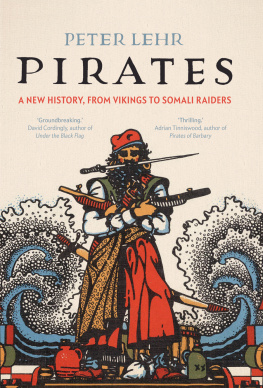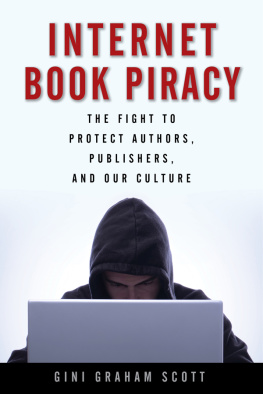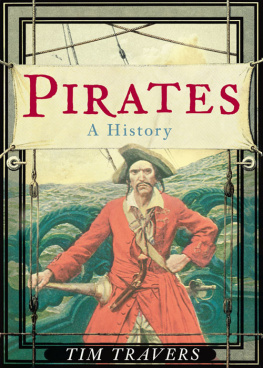Various - Piracy: A History
Here you can read online Various - Piracy: A History full text of the book (entire story) in english for free. Download pdf and epub, get meaning, cover and reviews about this ebook. publisher: PediaPress GmbH, genre: History. Description of the work, (preface) as well as reviews are available. Best literature library LitArk.com created for fans of good reading and offers a wide selection of genres:
Romance novel
Science fiction
Adventure
Detective
Science
History
Home and family
Prose
Art
Politics
Computer
Non-fiction
Religion
Business
Children
Humor
Choose a favorite category and find really read worthwhile books. Enjoy immersion in the world of imagination, feel the emotions of the characters or learn something new for yourself, make an fascinating discovery.

Piracy: A History: summary, description and annotation
We offer to read an annotation, description, summary or preface (depends on what the author of the book "Piracy: A History" wrote himself). If you haven't found the necessary information about the book — write in the comments, we will try to find it.
Piracy: A History — read online for free the complete book (whole text) full work
Below is the text of the book, divided by pages. System saving the place of the last page read, allows you to conveniently read the book "Piracy: A History" online for free, without having to search again every time where you left off. Put a bookmark, and you can go to the page where you finished reading at any time.
Font size:
Interval:
Bookmark:
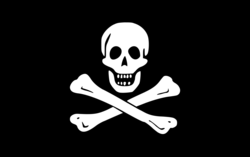
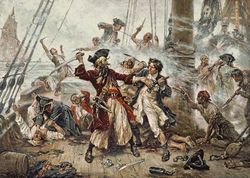
Piracy is typically an act of robbery or criminal violence at sea. The term can include acts committed on land, in the air, or in other major bodies of water or on a shore . It does not normally include crimes committed against persons traveling on the same vessel as the perpetrator (e.g. one passenger stealing from others on the same vessel). The term has been used throughout history to refer to raids across land borders by non-state agents.
Piracy is the name of a specific crime under customary international law and also the name of a number of crimes under the municipal law of a number of States. It is distinguished from privateering , which is authorized by national authorities and therefore a legitimate form of war-like activity by non-state actors. Privateering is considered commerce raiding , and was outlawed by the Peace of Westphalia (1648) for signatories to those treaties.
Those who engage in acts of piracy are called pirates. Historically, offenders have usually been apprehended by military personnel and tried by military tribunals .
In the 21st century, the international community is facing many problems in bringing pirates to justice .
The English "pirate" is derived from the Latin term pirata and that from Greek "" (peirats), "brigand", in turn from "" (peiromai), "I attempt", from "" (pera), "attempt, experience". The word is also cognate to peril.
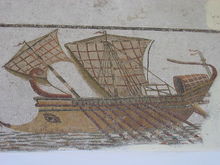
It may be reasonable to assume that piracy has existed for as long as the oceans were plied for commerce. The earliest documented instances of piracy are the exploits of the Sea Peoples who threatened the Aegean and Mediterranean in the 14th century BC. In classical antiquity , the Illyrians and Tyrrhenians were known as pirates, as well as Greeks and Romans . During their voyages the Phoenicians seem to have sometimes resorted to piracy, and specialized in kidnapping boys and girls to be sold as slaves .
In the 3rd century BC, pirate attacks on Olympos (city in Anatolia ) brought impoverishment. Among some of the most famous ancient pirateering peoples were the Illyrians , populating the western Balkan peninsula. Constantly raiding the Adriatic Sea , the Illyrians caused many conflicts with the Roman Republic . It was not until 168 BC when the Romans finally conquered Illyria and made it a province that their threat was ended.
During the 1st century BC, there were pirate states along the Anatolian coast, threatening the commerce of the Roman Empire in the eastern Mediterranean. On one voyage across the Aegean Sea in 75 BC, Julius Caesar was kidnapped and briefly held by Cilician pirates and held prisoner in the Dodecanese islet of Pharmacusa .
The Senate finally invested with powers to deal with piracy in 67 BC (the Lex Gabinia ), and Pompey after three months of naval warfare managed to suppress the threat.
Many pirates had roles in Chinese history since the Three Kingdoms period. An example includes of Eastern Wu .
As early as 258 AD, the Gothic - Herulic fleet ravaged towns on the coasts of the Black Sea and Sea of Marmara . The Aegean coast suffered similar attacks a few years later. In 264, the Goths reached Galatia and Cappadocia , and Gothic pirates landed on Cyprus and Crete . In the process, the Goths seized enormous booty and took thousands into captivity.
In 286 AD, Carausius , a Roman military commander of Gaulish origins, was appointed to command the Classis Britannica , and given the responsibility of eliminating Frankish and Saxon pirates who had been raiding the coasts of Armorica and Belgic Gaul .
In the Roman province of Britannia, Saint Patrick was captured and enslaved by Irish pirates.
Early Polynesian warriors attacked seaside and riverside villages. They used the sea for their hit-and-run tactics a safe place to retreat to if the battle turned against them.
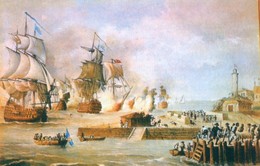
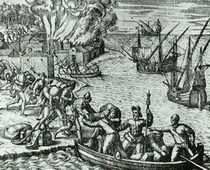
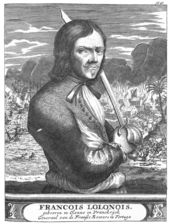
In 1523, .
Another famous pirate of this era was , who fought for hours to acquire Cuban gold, becoming mortally wounded in the process. He died of his wounds hours after having transferred the booty to his ship. Most pirates were eventually hunted down by the Royal Navy and killed or captured; several battles were fought between the brigands and the colonial powers on both land and sea.
Piracy in the Caribbean declined for the next several decades after 1730, but by the 1810s many pirates roamed American waters though they were not as bold or successful as their predecessors. Throughout the first quarter of the 19th century, the United States Navy repeatedly engaged pirates in the Caribbean, Gulf of Mexico and in the Mediterranean. Several warships were designed specifically for the task. The most successful pirates of the era were and Roberto Cofresi . Lafitte's ships operated primarily in the Gulf of Mexico but Cofresi's base was in Puerto Rico where he was considered a type of Robin Hood by many Puerto Ricans. Eventually he was defeated by the schooner USS Grampus and captured in 1825. The United States landed shore parties on several islands in the Caribbean in pursuit of pirates; Cuba was a major haven. By the 1830s piracy had died out again, and the navies of the region focused on the slave trade .
In 1827, Britain declared that participation in the slave trade was piracy, a crime punishable by death. The power of the Royal Navy was subsequently used to suppress the slave trade, and while some illegal trade (mostly with Brazil and Cuba) continued, the Atlantic slave trade was eradicated by the middle of the 19th century.
In the 20th century, one notable pirate active in the Caribbean was Boysie Singh . He operated off northern South America. He and his pirate gang killed several people and plundered their ships from 1947 to 1956. He was convicted for murder and hanged in the Royal Gaol at Trinidad , on 20 August 1957.
Font size:
Interval:
Bookmark:
Similar books «Piracy: A History»
Look at similar books to Piracy: A History. We have selected literature similar in name and meaning in the hope of providing readers with more options to find new, interesting, not yet read works.
Discussion, reviews of the book Piracy: A History and just readers' own opinions. Leave your comments, write what you think about the work, its meaning or the main characters. Specify what exactly you liked and what you didn't like, and why you think so.



